The beginning of September can be a particularly busy time for academics. Not only are academic staff busy preparing for the new teaching semester, we are also busy conducting our own research and presenting this work at conferences across the UK and beyond! Here are some updates on recent conference presentations featuring new research conducted by academic staff from Staffordshire University’s Department of Psychology:
Developmental Psychology: Children’s Creative Intentions in Drawing
The Annual British Psychological Society Developmental Section Conference was held in Manchester this year. This conference is an opportunity for researchers (from students to Professor level) to hear about new research and ideas in Developmental Psychology. It also a great opportunity to catch up with likeminded researchers, many of whom become friends over the years, and attend social events, including the conference Gala Dinner.

Dr Sarah Rose & Dr Richard Jolley
This year two of our Developmental Psychology Team, Dr Richard Jolley and Dr Sarah Rose, attended the conference and presented work on children’s creative intentions in drawing. This is a new area of research as although we know an increasing amount about how children’s drawing skills develop we know very little about where they actually get their ideas about what to draw from. Sarah and Richard presented qualitative research suggesting that children are inspired by a wide range of sources when deciding what to draw, including their immediate surroundings, recent experiences, memories, imagination and motivation to express their thoughts and emotions.
BPS West Midlands Conference: Health Psychology, Keynotes, Social Norms & Brand Recognition!
Various members of staff and students, including many from Staffordshire’s Centre for Health Psychology, attended the British Psychological Society’s West Midlands Branch Conference held in Coventry in early September. The conference was an opportunity for students (both undergraduate and postgraduate), early career researchers and academic researchers to present their own research and hear about the latest psychological research being conducted in the West Midlands region.

Professor Karen Rodham, Keynote Talk
Professor Karen Rodham, Professor of Health Psychology at Staffordshire University and current Chair of the BPS Division of Health Psychology, gave an engaging and insightful keynote talk about her practice and research working to better understand how people cope with chronic health conditions such as Complex Regional Pain Syndrome. Karen discussed her background in Health Psychology, her practice work and ongoing projects into how people cope with and manage chronic pain, including some interesting new research into how individuals represent chronic pain through drawings or portraits.

Dr Rob Dempsey’s poster presented at the BPS WM Conference
Other presenters from Staffordshire University included Dr Rob Dempsey who presented findings from the recent European Commission-funded SNIPE (“Social Norms Intervention for Polydrug usE in university students“) study, included recent work demonstrating that European students have similar overestimations of their peers’ cannabis use behaviours as found in North America. This study is part of an ongoing series of projects conducted by Rob and several Masters in Health Psychology students investigating the role of misperceptions of peer norms (attitudes and behaviours) in health-related behaviours, such as help seeking for various health issues, substance use behaviours, and self-screening behaviours for cancer (e.g. testicular self-examination).

Jenny’s poster
Also presenting data was Jenny Parfitt-Bowman, a PhD student working on a cognitive psychology research project into branding and consumer behaviour using eye-tracking equipment under the supervision of Dr Louise Humphreys and Dr Emily Buckley. Jenny’s research is investigating the processing of brand information when certain features of the product packaging (e.g. location) is manipulated.
BPS Cognitive Section Conference: Product Branding & Facial Recognition
Dr Louise Humphreys, and PhD student Jenny Parfitt-Bowman, also presented their research at the Annual British Psychological Society Cognitive Section Conference which was held in Kent. Their presentations were on the topic of product branding. In particular, Louise’s presentation discussed the role of automatic and voluntary processes in locating and recognising a branded product, and Jenny’s presentation considered the impact of brand manipulation on visual attention disruption and accurate product recognition (see below for pictures).


Also attending the BPS Cognitive Section Conference was Dr Andrew Edmonds, who has posted his own report on new developments in facial recognition research as discussed at the conference (click here to read Andrew’s blog post).
Academic staff at Staffordshire University’s Psychology Department have a wide range of research interests which directly informs their teaching of undergraduate and postgraduate students. The department is home to two centres of research excellence: the Centre for Psychological Research and the Centre for Health Psychology.
For more information about courses offered by the department please click here, including information about our BPS accredited Stage 1 Health Psychology Masters, Stage 2 Health Psychology Professional Doctorate, as well as our new MSc/MA by Research and established MPhil/PhD programmes.







 offers a range of
offers a range of 

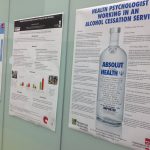
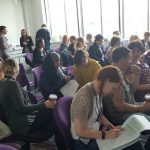
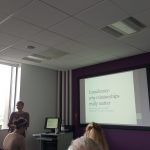


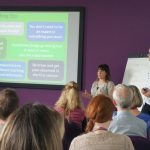
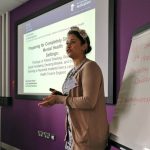
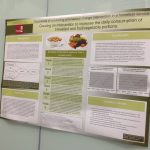

 centre of excellence for teaching and research in Health Psychology, and is home to Staffordshire’s BPS Accredited Stage 1
centre of excellence for teaching and research in Health Psychology, and is home to Staffordshire’s BPS Accredited Stage 1 in
in 












